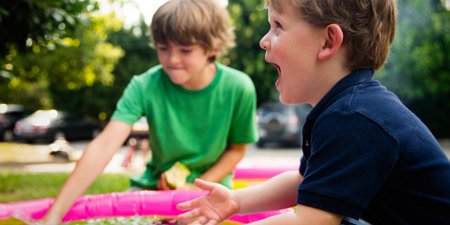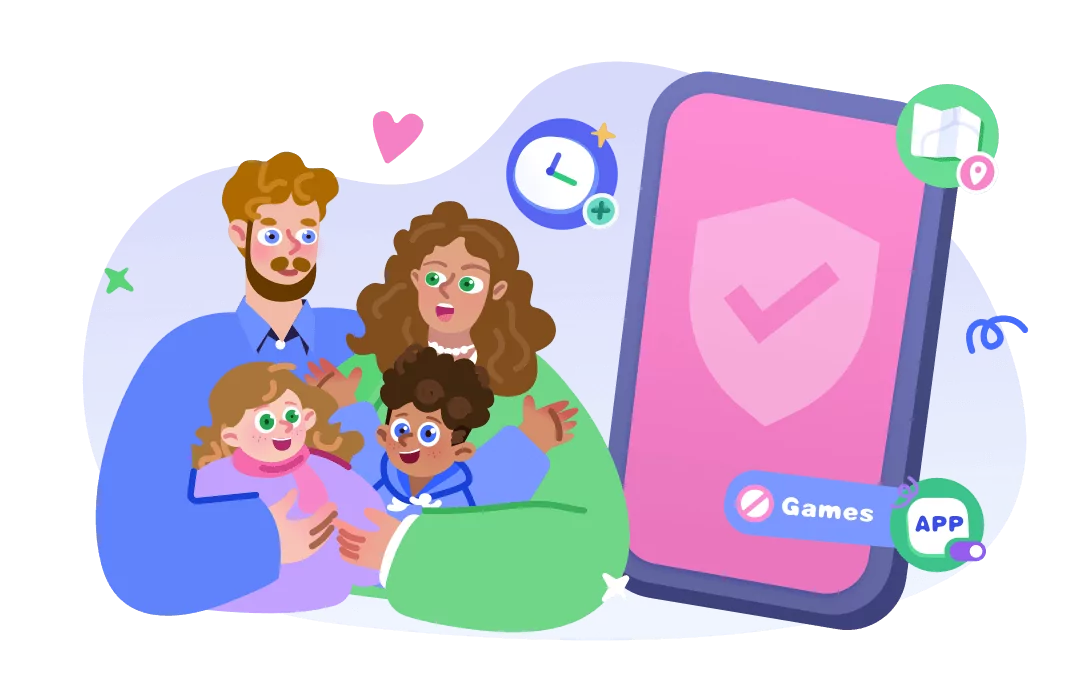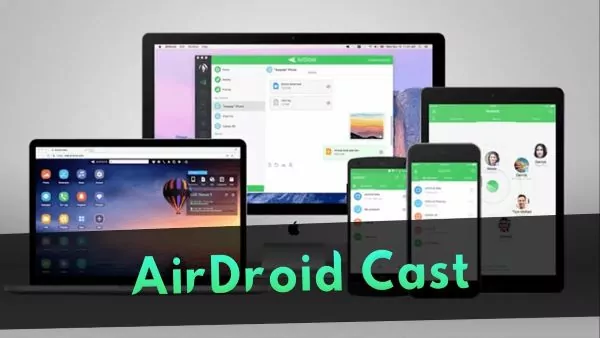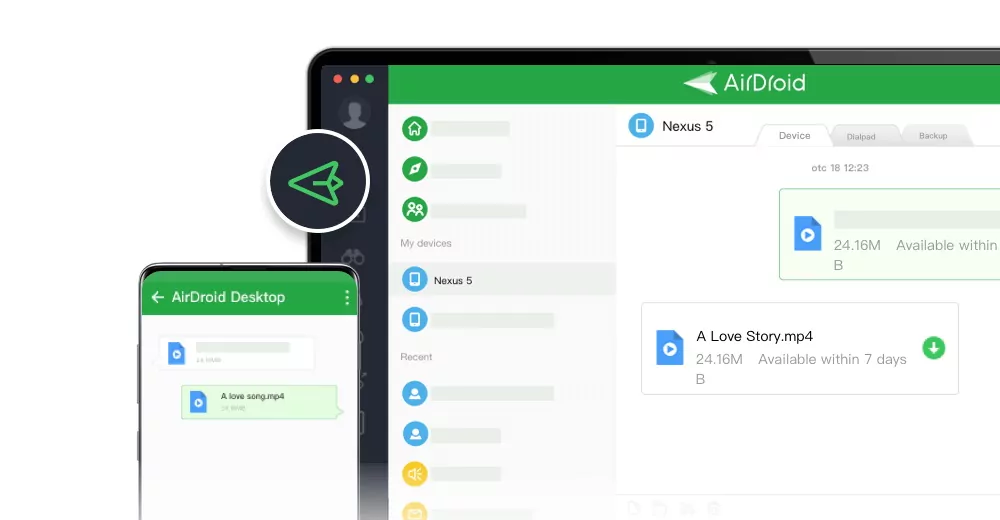9 Natural Ways to Calm a Hyper Child - For Parents
Dealing with hyperactive kids can be a challenging experience for parents, educators, and caretakers alike. Finding effective ways to manage their boundless energy can often overwhelm you and unsure of where to turn or what to do.

Luckily, there exist several natural ways that can help you bring calm to your uniquely hyperactive child. These methods range from simple strategies like incorporating musical therapies or encouraging chewing gum to more complex approaches such as nutrition.
However, it's important to remember that each child is a unique individual with their own set of needs and characteristics. This means that what works for one hyperactive child may not be equally effective for another. Therefore, the key to success lies in identifying the specific strategies that resonate best with your child, allowing both them and you to experience a newfound sense of calmness.
Before discussing these natural methods for calming hyperactive children, it's essential to establish a clear understanding of why your child is hyperactive.
Why Is My Child So Hyper?
Why is your child so hyper? Well, let's explore some of the possibilities:
Have you ever wondered why your child seems to have boundless energy, constantly bouncing off the walls and unable to sit still?
Well, hyperactivity in children can be attributed to various factors. Still, it often boils down to two potential reasons: it's just a normal part of childhood, or it might be linked to ADHD (attention deficit hyperactivity disorder).
So, let's explore these possibilities and gain a better understanding:
Normal Childhood Energy
First and foremost, it's essential to recognize that being hyperactive is quite common in children. Kids, regardless of their age, are naturally full of energy.
For instance, older children and teenagers exhibit high energy levels and typically have shorter attention spans than adults. It's an essential part of their development and growth.
Another good example is pre-schoolers, who are known for their seemingly endless enthusiasm and rapid shifts from one activity to another.
ADHD - A Possibility, not a Certainty
While hyperactivity is a normal aspect of childhood, it's natural for parents to wonder if it could be a sign of ADHD. And so, it's crucial to understand that not all hyperactive children have ADHD.

However, ADHD is a neurodevelopmental disorder characterized by persistent hyperactivity, impulsivity, and inattention patterns.
Here are some signs to look out for if you suspect ADHD in your child:
- Frequent Interruptions: Children with ADHD may struggle to wait their turn or frequently interrupt conversations.
- Difficulty Following Instructions: They might find following directions or organizing tasks challenging, often appearing disorganized.
- Forgetfulness: Forgetfulness is common, including forgetting to complete homework assignments or other responsibilities.
- Impatience: Patience may be in short supply, leading to frustration and impatience in various situations.
- Speaking Out of Turn: Children with ADHD might often speak out of turn or blurt out inappropriate comments.
It's important to note that for a diagnosis of ADHD, these behaviours should persist over an extended period, typically occurring both at home and in a school or social setting.
Temporary Factors to Consider
While ADHD is a possibility, it's also essential to consider temporary factors contributing to hyperactivity in children. One such factor is diet, particularly sugar intake. Sugary foods and drinks can lead to Sugar Rush (temporary spikes in energy), causing a child to become hyperactive for a short period, usually lasting a few hours. However, these sugar-induced episodes are different from the consistent and pervasive hyperactivity seen in ADHD.
Other important factors that cause hyperactivity in a child are Anxiety and Insomnia.
And so, while hyperactivity is a typical part of growing up, it's crucial to monitor your child's behaviour for other signs that might indicate ADHD.
Now, with that said, here are natural ways to calm a hyper child:
9 Effective & Natural Ways to Calm a Hyper Child
Dealing with a hyperactive child can be challenging for parents and caretakers. It often feels like their energy knows no bounds, and simply telling them to "calm down" doesn't always work.
Fortunately, there are effective natural ways to help your hyperactive child find a sense of calm and balance. Here are some strategies that can make a significant difference:
1. Meet Them on Their Level
One of the most effective ways to ease a hyperactive child into a state of calmness is to meet them on their level.
This is simply because children are much more likely to listen and cooperate when they feel a sense of rapport with an adult or caregiver. It's important to acknowledge that simply saying, "You need to calm down" or "settle down now" may not be effective when a child is overflowing with energy.
Instead, engage with them in their world. Join their play, ask them questions about what excites them, and show genuine interest in their activities. By connecting with your child on their terms, you can build trust and create a more conducive environment for them to calm down gradually.
2. Music Therapy
Hyperactive children often have minds that are racing at a faster pace than usual. Can listening to calming music help? Absolutely.
Music therapy has shown great success, especially with children with ADHD or similar behavioural challenges. Certain types of music, such as classical or instrumental music, have a soothing effect on children's minds. It can help them focus better, reduce anxiety, and gradually transition from a hyperactive state to a calmer one.
Consider creating a playlist of calming songs your child enjoys and play it during quiet moments or bedtime.
Additionally, soothing white noise, such as ocean waves or rainfall, can also help relax their minds and provide a calming atmosphere.
3. Mindful Breathing and Relaxation Techniques
Teaching your hyperactive child mindful breathing and relaxation techniques can be highly beneficial. Encourage them to take deep, slow breaths when they're feeling overwhelmed or too energetic. You can make the entire poecess more fun by incorporating games or visuals that help them understand the concept of deep breathing.
Another useful technique is progressive muscle relaxation. Guide your child through tensing and relaxing various muscle groups in their body. This can help release physical tension and promote a sense of calmness.
4. Create a Structured Routine
Hyperactive children often benefit from a structured daily routine. Consistency and predictability can help them feel more secure and in control of their environment.
Ensure that their day includes designated times for activities, meals, play, and rest. Having a visual schedule or checklist can be particularly helpful for younger children.
5. Provide Physical Outlets
Physical activity is a great way to positively channel a hyperactive child's excess energy. Encourage regular outdoor play, sports, or activities that allow them to run, jump, and explore. This can help reduce restlessness and improve their overall mood.
6. Herbal Remedies
For children grappling with anxiety and momentary hyperactivity, herbal remedies that soothe the nervous system can be valuable. Safe options include chamomile, passionflower, and lemon balm. These herbs can diminish the body's heightened response, promoting a more relaxed demeanour and facilitating restful sleep. Administering these herbs in the morning and before bedtime can assist your child in managing hyperactivity during these episodes.
7. Establish Healthy Sleep Patterns
Incorporating good sleep hygiene practices is essential. Consider the following guidelines:
- Maintain a consistent sleep schedule with the same bedtime and wake-up time each day.
- Create a comfortable sleep environment characterized by a tranquil, dark atmosphere (unless a small nightlight is necessary).
- Dedicate the bedroom solely to sleep; discourage activities like reading, doing homework, or watching TV in bed.
- Minimize stimulating activities in the hours leading up to bedtime, such as engaging in computer games or using electronic devices.
- Ensure your child receives an appropriate amount of sleep based on their age – approximately 9 hours for teenagers and 10-11 hours for younger children.
- Teach your child relaxation techniques. This may include things like deep breathing and visualization to help them unwind effectively before sleep.
8. Take Magnesium & Zinc
These two nutrients may sound unnecessary at first hand, but trust me, they are handy for a healthy child's development.
Magnesium deficiency is common in children experiencing hyperactivity, anxiety, depression, and mood disorders. Integrating magnesium supplements or using magnesium flakes in a pre-bedtime bath can promote relaxation and expedite the onset of sleep.
Also, Zinc deficiency is prevalent in children, particularly those with ADHD or anxiety. Zinc plays pivotal roles in neurological, immune, and digestive functions. Zinc supplementation has demonstrated its potential to mitigate impulsivity and hyperactivity. Ensure your child's diet includes zinc-rich foods or explore zinc supplements under the guidance of a healthcare professional.
9. Promote Calming Dietary Choices
A balanced and nutrient-rich diet can significantly influence a child's ability to maintain calmness. For this, reaching out to an expert is ideal to ensure your child gets the right food.
It's unrelated, but chewing guns can help your kid calm down! – just an example.
Final Thoughts
I know we have said this already, but it won't hurt to do it again – Every Child Is Unique.
Keep this in mind because what works best may vary from one individual to another. Finding the most effective calming strategies for your hyperactive child may take some trial and error.
Overall, by using these natural approaches and maintaining patience and consistency, you can help your child find the balance and calm they need to thrive.












Leave a Reply.